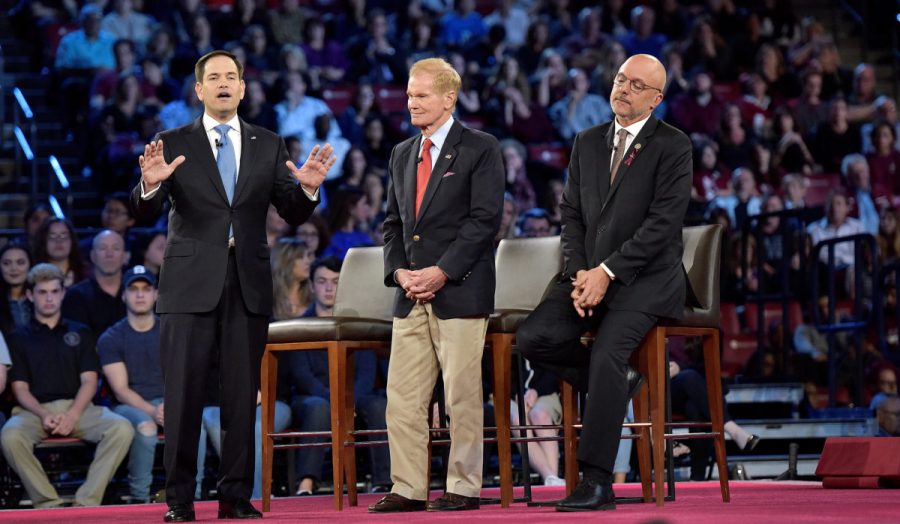What’s next in gun control
Students willing to continue to fight for better gun regulations
After the nationwide school walkout on Mar. 14, there are still ways for students to be involved in the movement to improve gun legislation and school safety.
Freshman Eva Roytberg, a main organizer behind the walkout at both campuses, said she hopes the protest “will leave students inspired to keep pushing for gun reform.”
Regarding her future involvement in this campaign, she said, “As of now I don’t have any plans to organize another event, but I do plan to participate in the March for Our Lives.”
The Mar. 24 March For Our Lives was organized by the students of Marjory Stoneman Douglas High School, and there will be an event in Chicago.
In addition to marching next Saturday, Roytberg said, “I plan to support the gun violence movement in any way I possibly can after the walkout, if that means writing letters to local legislators or marching in the city.”
While she will continue to support the gun violence movement, she said “with such an unpredictable political climate it’s difficult to predict exactly what actions we will have to take in the future.”
While some students are unsure of how to help the movement, another anti-gun violence club is being formed.
Junior Isabella Roselli decided, based on a classmate’s concern that the walkout would not prompt lasting change, to bring another organization to the school.
“I looked into what I could do, and the SAVE (Students Against Violence Everywhere) Promise club sponsored by a Sandy Hook organization seemed like the most powerful way to do it,” Roselli explained.
She added that overall, “the best way to reach people about gun violence is making it real. I think a lot of times people think it doesn’t affect them and it will never happen to them, but if people realize this sort of thing is real, and could happen right in our backyard, people will want to do more to help.”
Many students were relieved when colleges began to announce that they will not penalize accepted and applying students for participating in the protests.
Most people, including Barack Obama, have commended the Parkland students and others involved on their humanitarian work.
George Clooney, Oprah Winfrey, and other celebrities have contributed significant donations to the fundraiser for March For Our Lives, showing their support for the cause.
Roytburg defined the role of the protest as “resembling a body that for the most part cannot vote and is largely left out of the conversation.”
Peaceful protests include the walkout, marches, and Apr. 20 National Day of Action Against Gun Violence in School, commemorating the Columbine school shooting of 1999.
There are many ongoing ways students can participate in the struggle against gun violence, such as the Wear Orange campaign to raise awareness beyond efforts to change legislation.
Roselli said, “just because laws and procedures exist doesn’t make them right. You should always stand up for what you believe in, whether laws support you or not.”
Acknowledging and working together on the issue of gun violence is the goal of the widespread protests, as Roytberg said, “students are already making a difference just by showing up. If they want to further their activism, I feel one of the best and easiest things to do is to spark conversation with friends and family about the cause.”








































